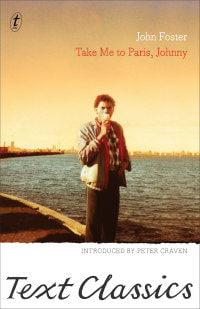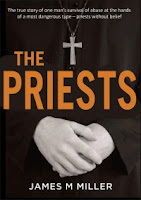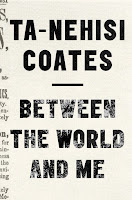Staff review by Chris Saliba
Rebecca Stott's memoir of her father and the turmoil of growing up in the Exclusive Brethren is fascinating and deeply moving. Rebecca Stott is an English academic and novelist. She was raised in the Exclusive Brethren, a Christian sect, until about the age of six or seven. Her Scottish great-grandfather, David Fairbairn Stott, joined the Exclusive Brethren at the turn of the 20th century and the family stayed on for four generations. The Stotts left the Exclusive Brethren in the 1970s when their leader, James Taylor Junior, was caught in a notorious sex scandal. Taylor had actually taken the Christian sect in a more extreme, puritanical direction. Stott refers to the Exclusive Brethren throughout most of the book as a "cult".
When Stott's father, Roger, lay dying of cancer in 2007, he was filled with an urgency to write his memoirs. He feverishly started, but found writing about the 1960s difficult. This was the period when the Exclusive Brethren became more extreme. Stott's father even went so far as to liken them to the Nazis for their totalitarian control techniques. He died before he could finish writing his story, but asked his daughter, Rebecca, to finish it.
In the introduction to
In the Days of Rain, Stott writes that she was frequently asked what it was like growing up in the Exclusive Brethren. The problem with this question was that you could never give a simple answer. To honour her father's wishes and go some way to explaining what it was like in the Exclusive Brethren, Stott has written a dual memoir, one of her father and herself. It's a gripping and moving story, beautifully told, full of tragedy and hard truths.
The story starts in Scotland, with Stott's great-grandfather, the first to join the Exclusive Brethren. They were then more of a strict Protestant church, rather than the cult they turned into in the 1960s, but one nevertheless that frequently broke off into factions, fighting over doctrinal interpretations of the Bible. Scottish seaside towns where these arguments took hold would find their small number of residents in locked battle, refusing to talk to each other.
Stott has done much research and gives a well fleshed out family history, with special attention paid to family members who had it particularly tough. One aunt was put into an institution simply because she had epilepsy and was considered too "wilful". The church's attitudes to women was one of young Rebecca's major frustrations. Why didn't women get sick of being silenced and speak up? The attitude of the church was that women were to be seen and not heard. Women did what they were told, their opinions were not welcomed.
A frightening tool the church used against members was known as "withdrawing from". If a member had been found to have transgressed some rule or strayed from the church's teachings they could be withdrawn from. It meant putting people into total isolation. If all your social networks are within the church, indeed, if your whole family is within the church, being withdrawn from could mean disaster. Many committed suicide or went mad. One man murdered his family, then hung himself.
As you would expect, the church brainwashed members over many years, even lifetimes. Stott grew up terrified of Satan, believing she wasn't good enough to be taken up to Heaven when the end times came, and spent much time wondering how she would survive on earth among the less pure like herself. A judging and terrifying God watched everything, and you had to look out for signs of God's wrath.
Roger Stott, Rebecca's father, who makes up the central focus of this memoir, is a complex and tortured character. A great lover of literature and cinema, a hard drinker and occasional actor, Stott paints him as almost Shakespearean, half Faltstaff and half Lear. At six foot four in height and weighing some 200 kilos, he also reminded her of an Old Testament prophet, a larger than life character. Roger Stott's later life descended into farce and tragedy. He had affairs, left his wife, drank too much, moved into shabby lodgings, became addicted to roulette, was busted for embezzling money and did jail time.
Through all of this Stott describes her love-hate relationship with her father. He would take her to the theatre and discuss art and literature, but she would get angry with him for his many betrayals. They had much in common, their tastes in books, philosophy and history, but their family past in the Exclusive Brethren had caused irreparable damage.
Rebecca Stott tells the uncomfortable story of her family and her father with honesty and understanding. It's a psychologically complex history, a life that's been lived at the extremes, but which has finally moved to the centre.
In the Days of Rain does what literature does best, by trying to work out life's unfathomable mysteries, contradictions and tragedies. This is literature as therapy. Readers will find themselves drawn to this very human story of a flawed family history and its fallible patriarch.
In the Days of Rain: A Daughter, a Father, a Cult, by Rebecca Stott. Published by Fourth Estate. ISBN: 9780008209179 RRP: $27.99
To sign up for our monthly newsletter, featuring new releases, book reviews and favourite articles from around the web, click here.



















